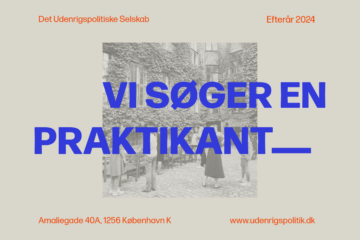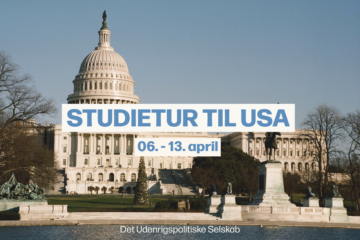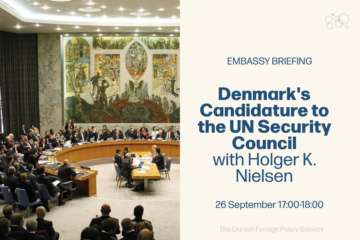A fudge too far
by Sten Hansen
It is confusing, and rather worrying, not least as it is a question of the highest actuality just now (8. January 2019), that the backstop, contained in the “Withdrawal Treaty” between the EU and the UK, is referred to as being “temporary”, and that it is said about it that it “probably will never be needed”. As postulated, it is only an “insurance against something improbable”.
This is a fudge above all fudges: There isn’t the slightest possibility that the backstop can ever end. Any assertion to the contrary is truly reprehensible. Though in minor cases constructive ambiguity can be excused, in major cases (like Brexit) it is a dangerous and grossly undemocratic matter. Indeed, it is a terrible threat to democracy, as its effect is a misleading of the public and also of lawmakers, who cannot be expected to be able to see through every subtle misrepresentation. In matters such as Brexit, concerning the destiny of Britain and indeed of the whole West, fudging is unforgivable.
That the backstop isn’t time-limited is in fact the central point in that part of the withdrawal arrangement that concerns the Irish border. Indeed, the permanence of the backstop – or something to the same effect – is a logical necessity because of the Good Friday Agreement. Moreover, it is a fruit of the stormy tale that is the history of Ireland. If the backstop could have been temporary, the awkward negotiations of the latest two years – ending with a fudge – wouldn’t have happened. A more regular result could quickly have been reached.
Of course, the name “backstop” can be changed. That could happen by incorporating the backstop in a free trade agreement that contains a permanent and unilaterally irrevocable commitment for Britain to stay under the rules of EU’s customs union, hence sharing a common customs border to third countries and obeying the rules of the EU as they are steadily being revised by the EU’s ruling bodies. A free trade agreement such as Canada plus isn’t enough, since checks must be made for country of origin if there is no common outside border. The backstop, i. e. some sort of permanent customs union, must be incorporated.
It is a conceptual misunderstanding that technology could solve the problem: Technology can help to make a border invisible to some degree, but there will still be a hard border, as long as there is a line over which the passage of certain goods is subject to restrictions, and where people can be punished for transgressing. It would make no difference if the control were technological, physically invisible and placed away from the border: If there are different economic systems on the two sides of a border, it will be felt as a hard border.
That is the point that has been made by the DUP in respect to the (regulatory, non-customs) border in The Irish Sea, entailed by the withdrawal deal. And that is undoubtedly the point that a future Irish government and the EU will be making in relation to the Irish land border, should divergence of the economic systems on the two sides be considered: Such a divergence will by the EU be interpreted as being in breach of the Good Friday Agreement. According to the withdrawal deal, decisions will be up to the EU, and the EU will have no incentive whatsoever to permit such a breach.
It follows that there is a near zero possibility that the EU will – unless there is a customs border in The Irish Sea or a united Ireland comes into being (not unlikely after Brexit) – accept a termination at any time of the conditions concerning the customs arrangement valid for the entire UK. In this respect, the proposed withdrawal treaty entails a permanent vassalage for Britain under the EU, a price the British people must pay for a Brexit under the negotiated withdrawal deal. That is a fact which is often – willfully or by wishful thinking – denied by brexiteers who support Theresa May’s deal. And spokespersons from the EU are, obviously in order to be helpful to Theresa May, reluctant to stress this permanence of the customs arrangement.
I don’t think – even though one must respect the perseverance and the tactical skills of the prime minister – that this type of aiding is the right course to take. On the contrary, the EU should be quite clear in the language and call a spade a spade – not least for the sake of the future development of The West.
Let me explain the latter: Britain’s position as at the same time a European and an Anglo-Saxon country is the only natural and enduring factor that keeps The West together, The West as a community, as distinct from a mere ad hoc alliance. Indeed, the unity of The West overwhelmingly hinges on Britain’s engagement in both big branches of The West. Hence, by Brexit this unity is brought in dire danger. Therefore, if Brexit becomes reality very forceful efforts for building a new and credible partnership between Europe and the UK must be made, and everything that represents opposing aims should be carefully avoided.
But if the impending divorce should be founded on ambiguous formulations or otherwise fudged, the opposite will happen: Then, the scene would be set for years of unfriendliness and mistrust. Interpretations and misinterpretations concerning Brexit and its entailments would dominate the diplomatic acts and negotiations. Accusations and contra accusations would be the order of the day. Angry words would be spoken, bad mood and awkward thoughts would prevail. The EU and the UK would be increasingly perceived as antagonists. And political differences that should apply to politicians and statesmen will assert itself in amplified version as grave and obnoxious animosity between the peoples. The tone in the press could ring of even more fiendishness than heard today. That again would find its way back into the realm of diplomacy. Hence, true confidence between politicians from the two different sides of The Channel would only rarely be present, and useful agreements could be near impossible to obtain. In a situation like that, Britain must seek other diplomatic fields and politically disappear from the shores of Europe. Then the same will probably happen to the whole English-speaking world.
And then Europe will be left on the Continent together with Russia and China, hence geographically confronted with a superior military might. Inevitably, a very uncertain state of affairs will ensue. In this situation, fraught with danger and fear, and bereft of credible military protection from Western allies, Europe might well be compelled to join these two Eastern powers in some sort of alliance, an alliance which probably will be an adversary to alliances led by the USA and comprising other Anglo-Saxon countries.
Such a development must at any price be avoided. And – as explained – that demands straight and truthful talking between the EU and the UK, especially in the ongoing and probably last contacts up to Brexit – if this tragedy really happens! (Actually, Brexit becomes less likely, if the talking is straightforward, and we should not forget that the only happy outcome of the whole affair is exactly a Bremain).
Generally, the EU has in the Brexit negotiations taken a correct stand, also in the awkward question of the Irish border. Let this correctness in the concluding moments of this sad tale apply to the expectations that the EU will pronounce, to the promises it will give, and to the resolve it will demonstrate. Honesty and clarity, straightforward talking, even if unwelcome in the moment, are indispensable foundations for a true, confident and lasting friendship over The Channel – a friendship which Europe so deeply wants, and which a united West so desperately needs.


